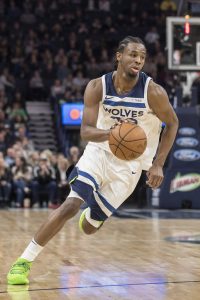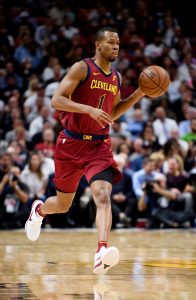The most notable dates of the 2018 NBA offseason are behind us now that we’re through the draft and the free agent period. However, there are still a number of dates and deadlines to keep an eye on in the coming weeks and months before teams take the court again to kick off the 2017/18 regular season.
The list below doesn’t include every event or deadline that will take place prior to opening night on October 16, but these are several of the most important upcoming dates for teams and players.
Here’s the breakdown:
August 31:
- Last day teams can waive players and apply the stretch provision to their 2018/19 salaries. After August 31, teams can still use the stretch provision players who have multiple years left on their contracts, but their ’18/19 cap hits will remain unchanged.
September 5:
- Last day for teams to issue required tenders to unsigned second-round picks; those players become free agents on September 6 if not tendered.
September 25 (approximate; may vary by team):
- Training camps begin.
October 1:
- Last day for a restricted free agent to sign his qualifying offer, unless his team agrees to extend the deadline. If an RFA is still unsigned after October 1, he remains restricted, but can no longer sign that one-year QO.
- Note: Patrick McCaw (Warriors) is the only NBA restricted free agent still unsigned.
October 13:
- Last day for players on fully non-guaranteed contracts to be waived and not count at all against a team’s 2017/18 cap. They must clear waivers before the first day of the regular season.
October 15:
- Last day of the 2018 offseason.
- Roster limits decrease from 20 players to 15 (4:00pm CT)
- Last day for teams to sign a player to a rookie scale extension (5:00pm CT). [RELATED: Players eligible for rookie scale extensions]
- Last day for teams to sign a player to a veteran extension in certain scenarios. Extension-eligible veteran contracts with more than one season remaining can’t be extended after October 16; designated veteran extensions can’t be signed after October 16.
- Last day for teams to complete sign-and-trade deals.
- Last day for teams to convert an Exhibit 10 contract into a two-way contract.
October 16:
- Regular season begins. [RELATED: 2018/19 schedules by team]

 Houston Rockets (11 guaranteed contracts): In addition to their 11 fully guaranteed contracts, the Rockets also figure to hang onto
Houston Rockets (11 guaranteed contracts): In addition to their 11 fully guaranteed contracts, the Rockets also figure to hang onto